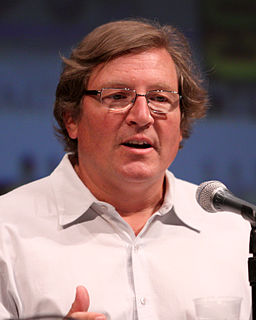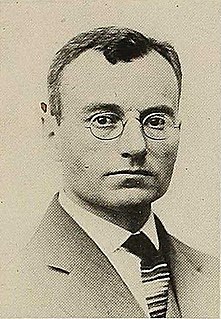A Quote by Joel Salatin
We don't need a law against McDonald's or a law against slaughterhouse abuse - we ask for too much salvation by legislation. All we need to do is empower individuals with the right philosophy and the right information to opt out en masse.
Quote Topics
Related Quotes
Most Americans need to be told discrimination against trans people is against the law. Instead of looking at us as people, they look at us as not people. If there's a law that states this treatment is not allowed, I'd feel safer to function more confidently in society because I'd know I'm protected by the law in the country I pay taxes in.
It is a serious undertaking and yes, we do need more fencing and we do need to use technology, and we do need more border control. And we need to have better cooperation by the way with local law enforcement. There are 800,000 cops on the beat, they ought to be trained to be the eyes and ears for law enforcement for the threat against terror as well as for immigration.
In war, in some sense, lies the very genius of law. It is law creative and active; it is the first principle of the law. What is human warfare but just this, - an effort to make the laws of God and nature take sides with one party. Men make an arbitrary code, and, because it is not right, they try to make it prevail by might. The moral law does not want any champion. Its asserters do not go to war. It was never infringed with impunity. It is inconsistent to decry war and maintain law, for if there were no need of war there would be no need of law.
Society today is no longer in revolt against particular laws which it finds alien, unjust, and imposed, but against law as such, against the principle of law. And yet we must not regard this revolt as entirely negative. The energy that rejects many obsolete laws is an entirely positive impulse for renewal of life and law.
I always believe, with any kind of hero, that you want to believe that their decision-making is right. That ultimately, I can trust what that guy's sense of right and wrong will be. Even in a vigilante movie, where you are going against the law by definition, you still want to agree with the fact that your character is breaking the law.
No officer should be allowed to behave as if they are above the law just because they are responsible for upholding the law. Permitting and protecting even the smallest acts of abuse by a tiny fraction of our officers leads to a culture where extreme acts of abuse are more likely, just like what happened to Laquan McDonald.
No one can deny that much of our modern advertising is essentially dishonest; and it can be maintained that to lie freely and all the time for private profit is not to abuse the right of free speech, whether it is a violation of the law or not. But again the practical question is, how much lying for private profit is to be permitted by law?
The principle of Parliamentary sovereignty means neither more nor less than this, namely, that Parliament thus defined has, under the English constitution, the right to make or unmake any law whatever; and, further, that no person or body is recognised by the law of England as having a right to override or set aside the legislation of Parliament.
Let's ask their parents. And will those children point to their parents and tell us you really need to enforce the law against my parents? Because they know what they were doing when they caused me to break the law. I don't think we've thought through this very well. But there's a reason why in the president's DACA programs he didn't grant his unconstitutional executive amnesty to the parents of dreamers.


































